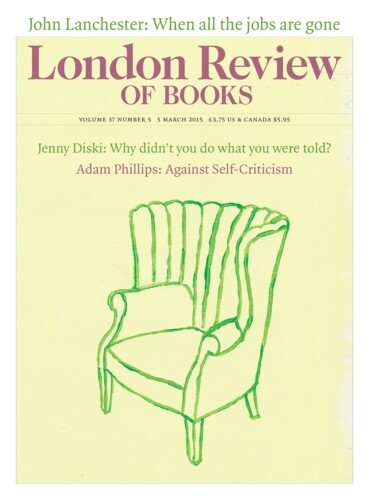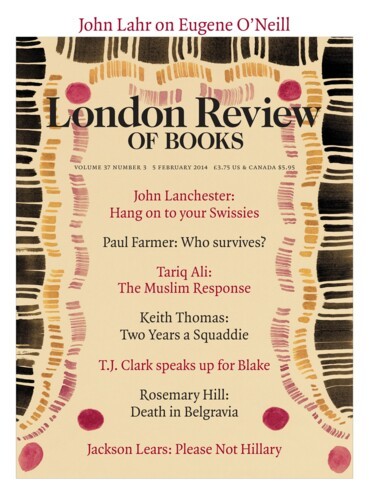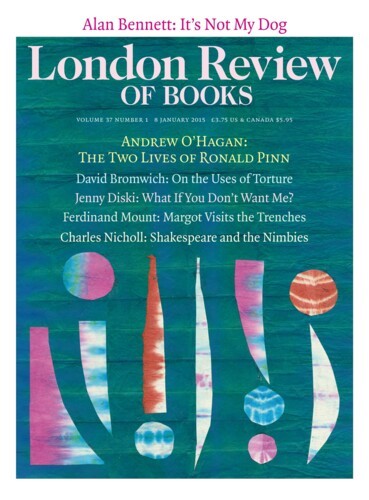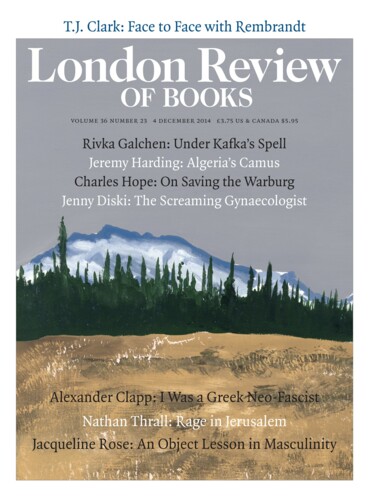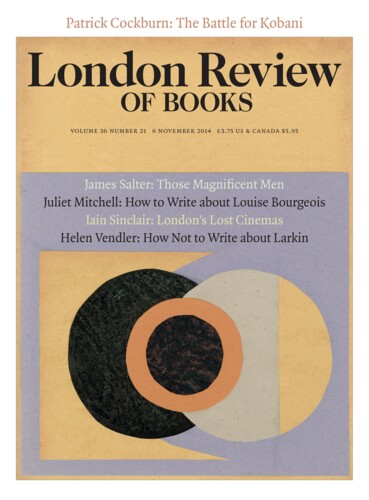Why didn’t you just do what you were told? The Look on My Face
Jenny Diski, 5 March 2015
A few years ago, someone asked how it came about that I ended up living with Doris Lessing in my teens. I was in the middle of the story of the to-ing and fro-ing between my parents and was finally reaching the psychiatric hospital bit when the man said something extraordinary, something that had never occurred to me or to anyone else to whom I’d told the story. ‘Why didn’t you just do what you were told?’ he asked. I was lost for words.
